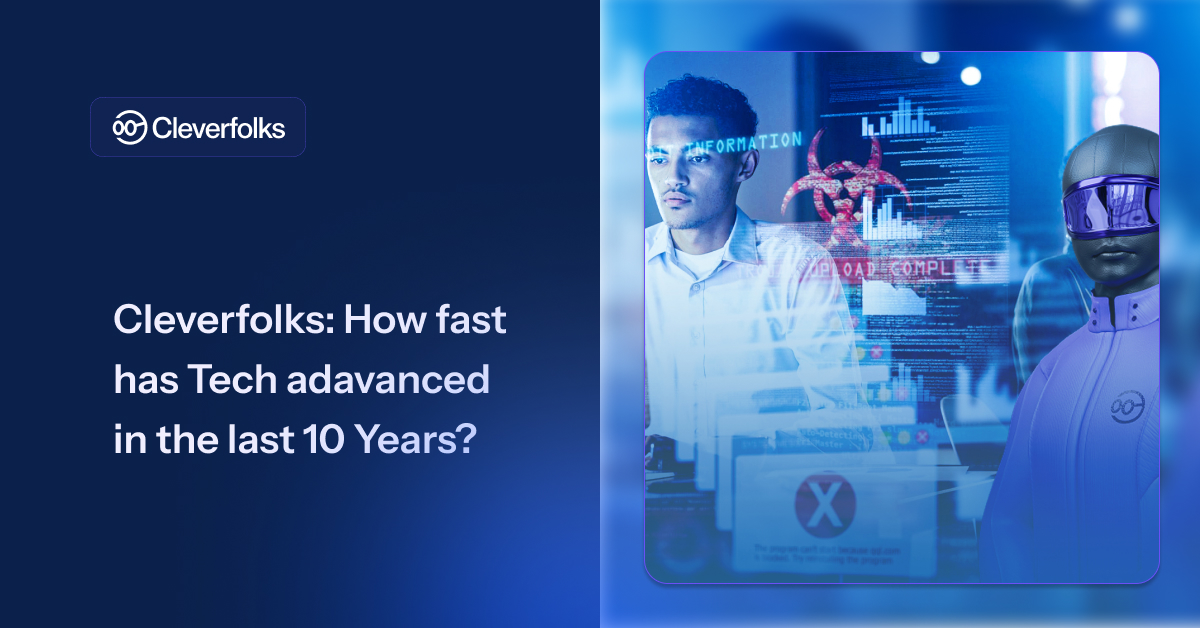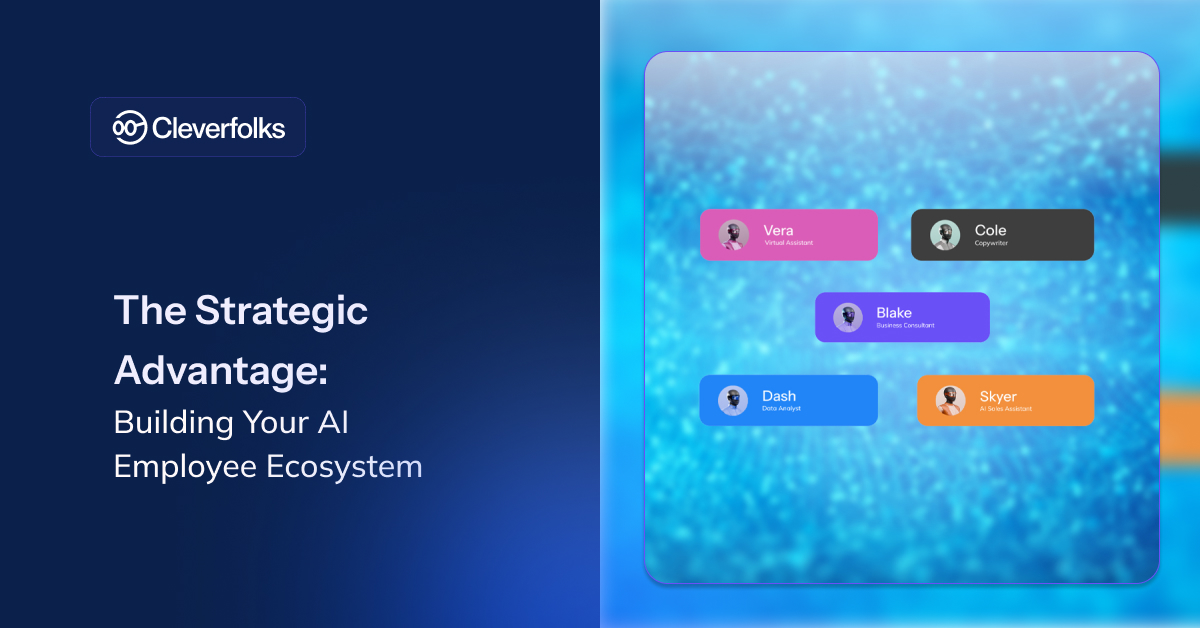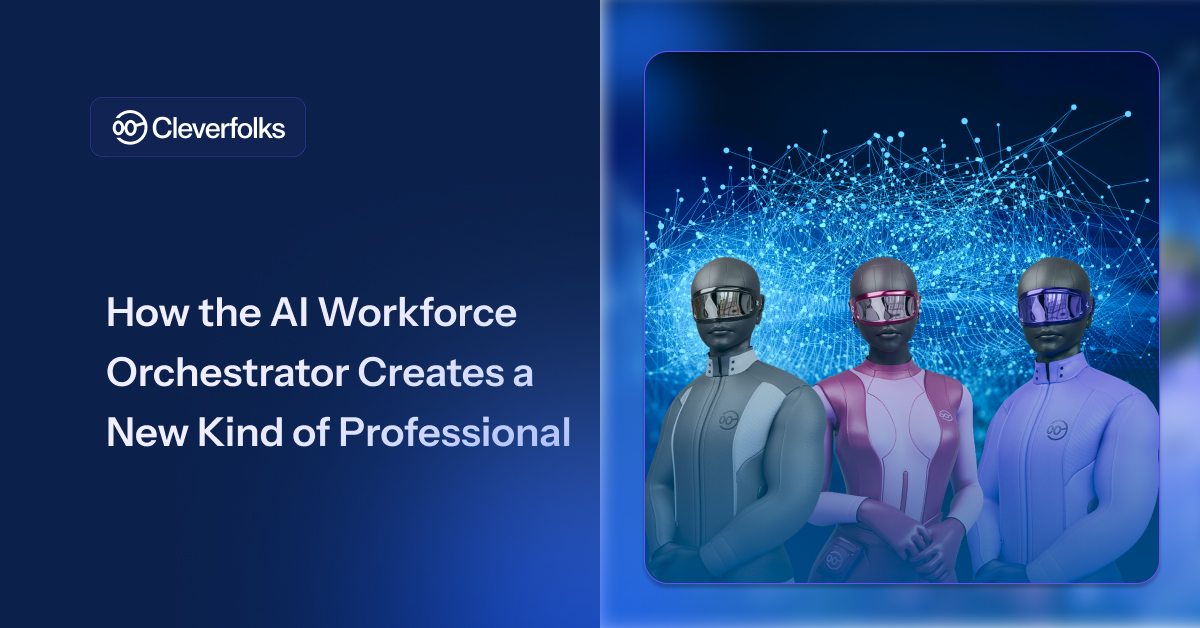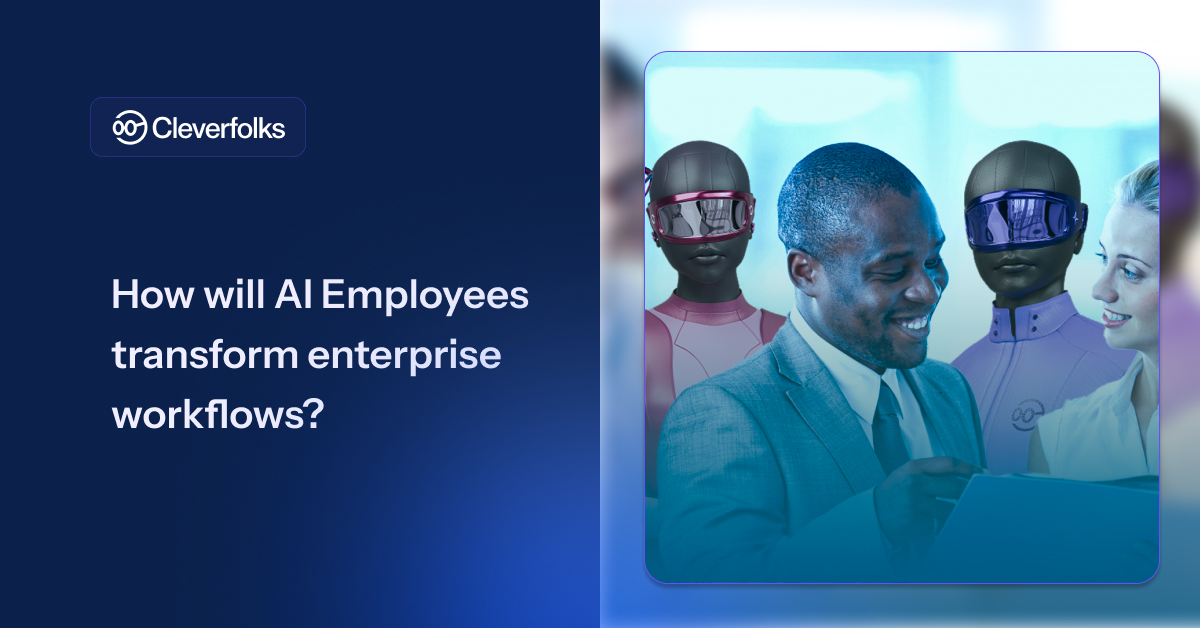
Cleverfolks: How Will AI Employees Transform Enterprise Workflows?
Artificial intelligence has arrived in the workplace and has the potential to be as transformative as the steam engine was to the 19th-century Industrial revolution, according to McKinsey’s latest workplace AI report. Virtual AI employees are now the reality of futuristic concepts; they’re becoming integral members of enterprise teams, fundamentally reshaping how organizations operate, make decisions, and deliver value to customers.

The #1 Mistake Entrepreneurs Make With AI, That's COSTING Them MILLIONS (Cleverfolks)
Imagine bleeding $6 million across two quarters. Your high-ticket consulting business that once generated $70 million is now hemorrhaging cash faster than you can count it. Every marketing guru, sales expert, and conversion optimization specialist you’ve hired has failed. This wasn’t fiction, this was Douglas James’s reality just 18 months ago.

Cleverfolks: Who is Responsible if AI Goes Wrong? Navigating the AI Danger Debate
As artificial intelligence becomes increasingly integrated into critical systems across healthcare, finance, transportation, and beyond, one question looms large: when AI systems fail or cause harm, who bears responsibility? This complex issue sits at the heart of the ongoing debate about whether AI is dangerous and how we should govern these powerful technologies.
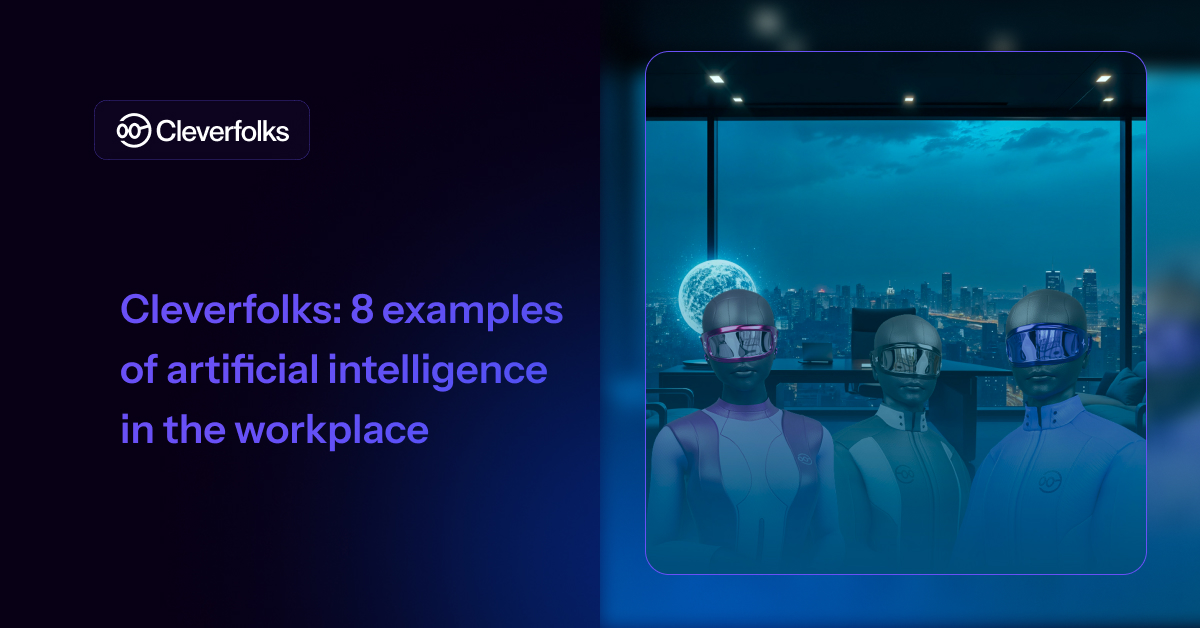
Cleverfolks: 8 Examples of Artificial Intelligence in the Workplace
New research reveals a shocking truth: companies without specialized AI employees by 2026 will lose 38% market share to competitors who embrace this workforce revolution. The stakes have never been higher for businesses to understand and implement AI integration strategies.

Cleverfolks: What is the Potential Benefits of AI Employees for Future Employment?
Remember TRON’s Master Control Program? It had one burning obsession: to be useful. Fast-forward 40+ years, and that fictional desire is becoming your workplace reality. AI employees don’t want to overthrow you, they’re programmed with an insatiable hunger to serve, to solve, to make your professional life exponentially better.
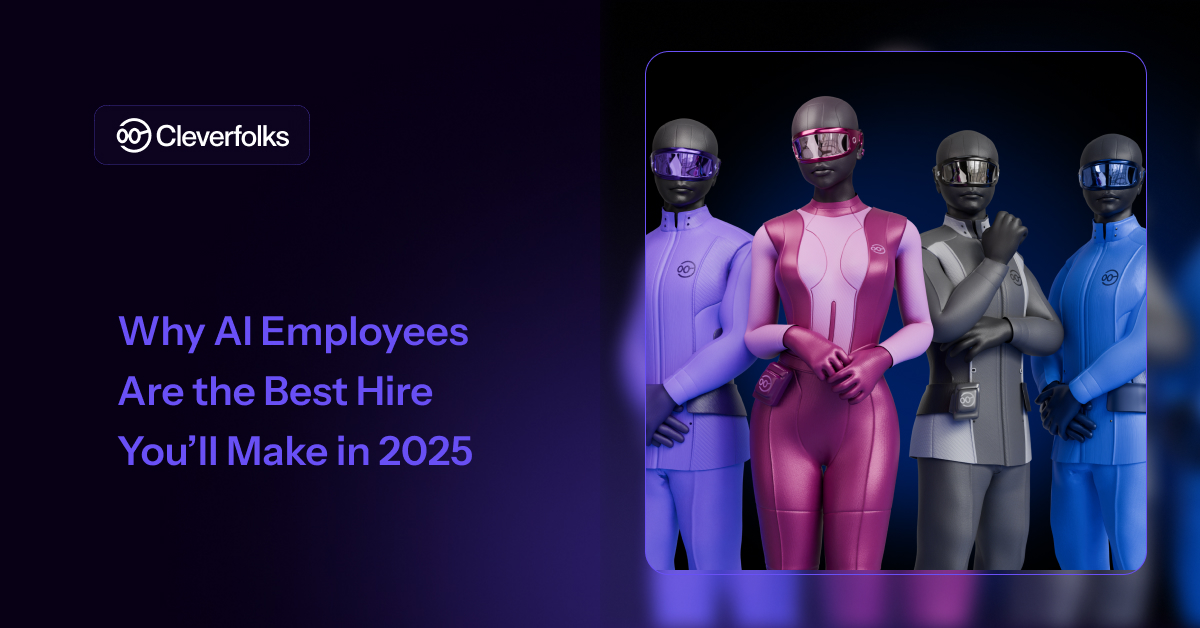
Why AI Employees Are the Best Hire You’ll Make in 2025
At this point in the AI era, this shouldn't even be debated, yet here we are, watching companies burn millions on hiring disasters while the solution stares them in the face. That viral Instagram rant about ridiculous job applications? It's just the tip of the iceberg.
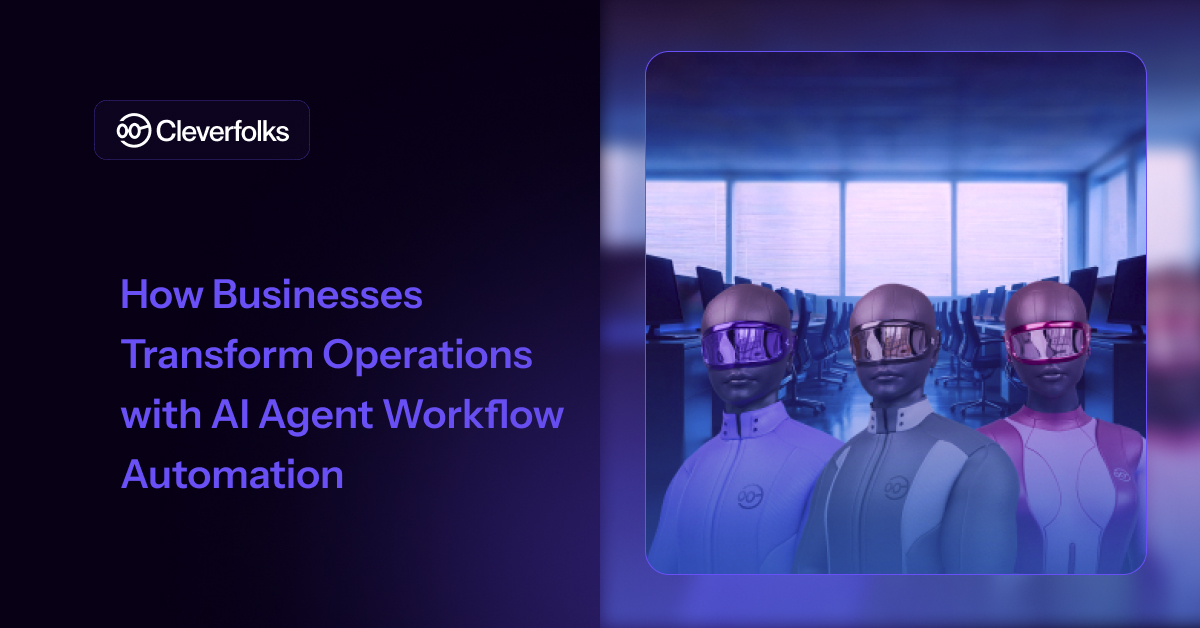
How Businesses Transform Operations with AI Agent Workflow Automation
The fundamental question “how does AI transform business operations” has shifted from theoretical speculation to practical implementation as companies worldwide discover the revolutionary potential of integrating virtual AI employees into their existing workforce ecosystems. Today’s most successful businesses aren’t asking whether AI agents can transform enterprise workflows, they’re strategically implementing specialized AI employees to create competitive advantages that seemed impossible just months ago.
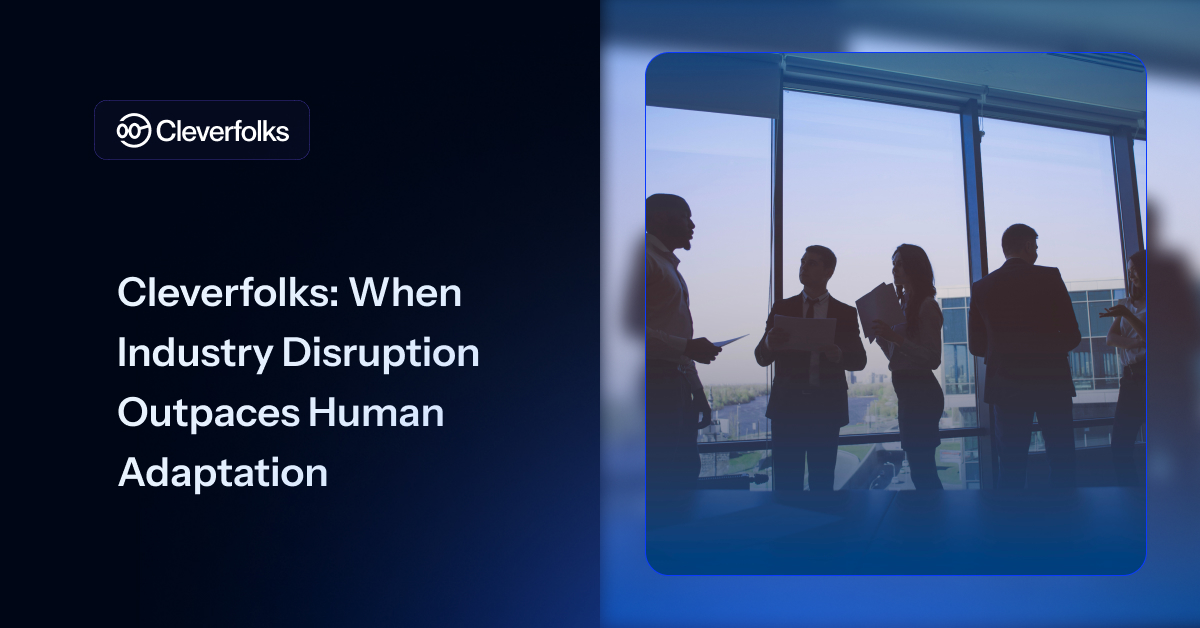
The Speed Mismatch: When Industry Disruption Outpaces Human Adaptation (Cleverfolks)
Your CEO just walked out of another meeting where competitors are launching AI overnight while your team needs 2 years to 'get ready.' Sound familiar? This speed gap is killing companies right now. Want to know the real problem

